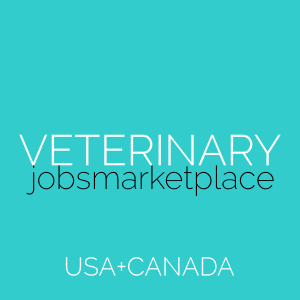
⚖️ Achieving Veterinary Work-Life Balance – It Can Be Done!
At the heart of veterinary medicine, amidst the hustle of clinics and the quiet moments with animals, lies a challenge that many of us face: finding harmony between our professional commitments and our personal well-being. You entered this field driven by a passion for animal care, fueled by a desire to make a difference in the lives of pets and their families. Yet, this noble pursuit often comes with its own set of hurdles, from long hours that stretch into the night to the emotional weight of our patient’s well-being on our shoulders.
But what if achieving a work-life balance wasn’t just a distant dream but a feasible, lived reality? What if the scales could be tipped back towards equilibrium, where your dedication to veterinary medicine enriches, rather than exhausts, your personal life?
We’ve gathered insights and practical advice not just from the literature but from your peers – those who have navigated the same choppy waters and found shores of tranquility after the storm. From mastering the art of self-care to setting boundaries that protect your time and energy, we explore avenues to help you craft a career that’s both fulfilling and sustainable. Join us as we delve into the strategies and tactics to manage long working hours, embrace continual learning without being overwhelmed, navigate technological demands, meet client expectations with grace, and much more…
Find your next job…the Fresh Way
Long Working Hours
One of the main reasons that achieving work-life balance in the veterinary industry can be difficult is the long working hours that are often required. Veterinarians, veterinary technicians, and veterinary nurses may be expected to work long shifts, sometimes including overnight or weekend work – sometimes planned but often unplanned due to unexpected medical issues. This can lead to fatigue, stress, and a lack of time for personal activities.
Prioritizing Self-Care | To overcome this obstacle, you must prioritize self-care. Regular breaks throughout the day, even if only for a few minutes, can help alleviate stress and reduce fatigue. Making time for leisure activities and hobbies outside of work is also essential to help achieve a better balance. But the key takeaway from all the feedback we received was to learn that working smarter, not longer, is the key – easy to say, and it takes discipline to set time boundaries (and yet still be flexible for those genuine emergencies). Taking control of your own time seems to be the foundation for achieving work-life balance.
Continuing Professional Development is…Continuous
Veterinary medicine is a rapidly evolving field, requiring continual learning and professional development to stay current. This pressure can eat into personal time, making work-life balance harder to achieve.
Embrace Your Professional Development Journey | Facing the constant evolution of veterinary medicine means your learning never stops. But how you approach this journey can make all the difference. Think of setting aside “me time” for learning as you would for any other important aspect of your life. Whether it’s dedicating a quiet Sunday morning to dive into online courses or listening to educational podcasts during your commute, find what blends seamlessly into your life. Consider your professional development as part of your personal growth, choosing courses and seminars that not only enhance your skills but also spark your interest. Remember, integrating learning into your daily routine doesn’t just advance your career; it enriches your life.
Technology Overload
The increasing reliance on technology in veterinary practices, from electronic medical records to client communication platforms, can lead to a sense of always being “on call,” further blurring the lines between work and personal life.
Set Healthy Digital Boundaries | In an age where technology constantly demands our attention, setting boundaries is vital for your peace of mind. Start with small, manageable steps like turning off work email notifications after hours and communicating your availability to clients and colleagues. It’s okay to carve out tech-free zones in your time, especially when they help you recharge and connect with what matters most to you. Use technology as a tool to enhance your life, not as a tether that keeps you from living it.
Client Expectations and Demands
Veterinary professionals often face high expectations and demands from clients, leading to stress and extended working hours. This client pressure can significantly impact personal time and contribute to an imbalanced work-life dynamic.
Navigate Client Expectations with Grace | Your relationship with your clients is at the heart of what you do, but it also requires clear boundaries. Being upfront and honest about treatment outcomes, availability, and response times can set a healthy foundation for these relationships. Practice saying no when necessary, and guide your clients towards understanding the value of preventive care. You can also be a source of reliable information outside of the clinic by directing them to resources that help answer their common questions. Remember, managing expectations isn’t just about maintaining professional boundaries; it’s about building trust and understanding, which are the cornerstones of any meaningful interaction.
Emotional Challenges
Working in the veterinary industry is also emotionally challenging. Dealing with sick and injured animals, euthanasia, and unhappy clients can take a significant emotional toll. This can lead to burnout and a lack of work-life balance.
Prioritizing Your Mental Health | This can include seeking colleague support, talking to a therapist or counselor, and engaging in self-care activities such as exercise, meditation, and mindfulness. Our profession needs to transform the perception of mental wellness from stigma to acceptance and create solutions so veterinary professionals can survive and thrive. Significant inroads are being made by Not One More Vet, a not-for-profit organization helping the industry come to terms with mental wellness challenges and providing practical, tactical solutions.
High Workload and Responsibilities
The veterinary industry is also known for having a high workload and significant responsibility. This can include managing multiple cases simultaneously, responding to emergencies, and making life-or-death decisions regularly.
Develop Your Organizational Skills | Learning to prioritize tasks and delegate responsibilities can reduce stress and improve work-life balance. Communicating openly with colleagues and supervisors about workload and expectations is also essential.
Financial Pressures
The veterinary industry can also be financially challenging, with high student loan debts and generally lower salaries than other healthcare professions. This can lead to financial stress and challenge your work-life balance aspirations.
You Need A Financial Plan | Budgets can be uninspiring, but doing these can make the difference between drowning or waving. This can include seeking financial advice, creating a savings plan, and having “that talk” with your practice leadership about salary, benefits, and a more flexible work schedule. The value and fulfillment of working in the veterinary industry are genuinely satisfying, but that in itself doesn’t pay the bills.
Lack of Support
You Need A Personal Support Network | Support, or more specifically, the lack thereof, came up as a severe impediment to achieving work-life balance. Unfortunately, this can be across the board, not just from colleagues and managers but also family and friends – who of us hasn’t been cornered by a friend with an unwell puppy or a lethargic cat?
But support rarely appears out of nowhere – you must seek out and build a support network. Proactively seek out mentorship from colleagues, reach out and connect with other professionals in the industry, and develop a personal support network with family and friends outside of work.
In Conclusion…
As we conclude our exploration of work-life balance within the veterinary profession, it’s clear that the path isn’t always straight or free of obstacles. Yet, every challenge presents an opportunity for growth, learning, and, ultimately, greater fulfillment both in and out of the clinic.
Remember, achieving balance is not a one-time act but a continuous journey of self-discovery, boundary-setting, and mindful living. It’s about weaving your passion for veterinary medicine with the other threads that make up the rich tapestry of your life. Whether it’s carving out time for self-care amidst long working hours, integrating continuous learning into your daily routine, setting digital boundaries, or navigating client expectations with empathy and firmness, each step you take is a move towards a more balanced and rewarding life.
You are not alone on this journey. Surrounded by a community of peers, mentors, and loved ones, you have a wealth of support and wisdom to draw upon. Together, we can shift the narrative around work-life balance in veterinary medicine from an elusive ideal to a lived experience.
As you move forward, carry with you the knowledge that every small change, every boundary set, and every moment of self-care adds up to a profound shift in how you experience your work and your life. There’s a beautiful balance to be found in the dedication to your profession and the commitment to your well-being. And on the horizon, there lies a future where you thrive not just as a veterinary professional, but as a whole, fulfilled individual.
So, take that next step with confidence and optimism. The journey toward balance is yours to make, and it’s strewn with opportunities for joy, growth, and fulfillment. Here’s to finding your equilibrium, one day at a time, and to a brighter, more balanced tomorrow in the world of veterinary medicine. The best is yet to come 🌞
About Veterinary Jobs Marketplace…
We connect veterinary talent with the best veterinary jobs. Explore our Job Campaigns for GP Veterinarians, Emergency Vets, Veterinary Nurses, Technicians, and more, each enriched with video insights. Find new team members using our unique Reach, Frequency, and Story strategy, now including One-to-One Outreach.
For Job Seekers: Discover your ideal veterinary jobs in cities across the USA and Canada. Register for custom Job Alerts, bringing the latest opportunities directly to your Inbox.
For Employers: Register to reach skilled veterinary professionals for your practice. From GP Veterinarians to Emergency Vets, our Job Campaigns help you find the perfect team members.
Worldwide Audience: Expand your reach internationally to the UK, Europe, Australia, New Zealand, and Asia. Our global reach will connect you to our global veterinary community.

